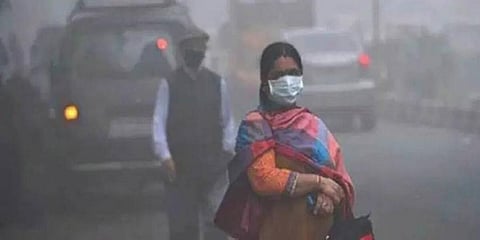

NEW DELHI: The Centre’s pollution control body in the National Capital Region (NCR) said on Friday that it will assess the unfolding situation of the pollution in the region before deciding on the imposition of Stage-IV of the Graded Response Action Plan (GRAP).
In a review meeting of its technical sub-committee, CAQM decided to monitor the situation for a day or more before implementing stricter curbs under Stage-IV. “After comprehensively reviewing the overall air quality scenario and relevant aspects, it was decided by the sub-committee unanimously to watch the situation for a day or more, before invoking more stringent disruptive actions under Stage-IV of GRAP,” the body said.
According to the CAQM, its sub-committee noted that Delhi’s average AQI is already showing a declining trend. “At 12 pm (Friday), the average AQI clocked 475 which improved to 468 at 4PM and further improved to 456 at 5PM, today. The forecast also indicates a further improvement in AQI,” it stated.
It also noted that GRAP Stage-III has been implemented only a day before and it’s only reasonable to give time to have its full impact. However, the 24-hour average air quality index of the city stood at 468 in the day which falls in the “severe plus” category, a stage at which all emergency measures are mandated to be initiated and enforced in the NCR.
These measures constitute the final stage of the GRAP and should ideally be activated at least three days before the AQI surpasses the 450 mark in the capital, as outlined in a policy document prepared by CAQM.
States to be asked not to allow paddy straw burning
A meeting chaired by L-G V K Saxena with Environment Minister Gopal Rai, on Friday, has decided to appeal to neighbouring states, particularly Punjab, to check paddy stubble burning. “Punjab, accounted for 1,921 (71.57 per cent) incidents of parali (stubble) burning out of a total of 2,684 such events on November 1,” said a statement from the Raj Niwas